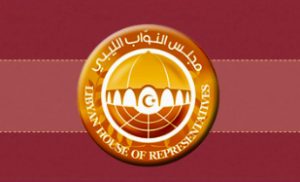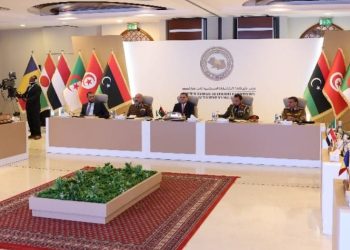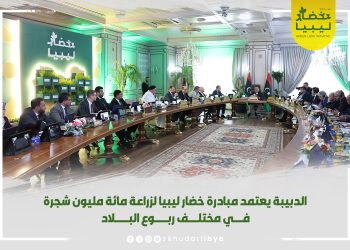By Sami Zaptia.

Tripoli, 18 January 2022:
Emad Al-Sayeh, the head of Libya’s High National Elections Commission (HNEC) said he did not expect the country’s postponed elections to take place for another 6 to 8 months (July to September). Sayeh was facing questions in the Libyan parliament (the House of Representatives – HoR) at its session yesterday held in Tobruk.
The session was presided over by fulltime HoR Speaker Ageela Saleh – his first since September after taking a legally-prescribed break to prepare for the now postponed 24 December presidential elections.
Opening the session, Saleh made a speech in which he reiterated the main reasons that had led to the postponement of the elections that Sayeh had given in his 4 January appearance before the HoR.
Saleh was keen to defend against the accusation that he the HoR were the main cause of the postponement of the December elections. Salah and HoR members repeatedly attempted to force Sayeh to name the political and militia obstructers of the elections. Sayeh had said he had received threats in the run up to the 24th of December.
Saleh demanded that Sayeh present any requests HNEC had to the HoR to help facilitate the elections. Sayeh said HNEC would send a report to the HoR.
Sayeh reiterates causes of election postponement
Sayeh reiterated his belief that the elections appeals process needed reform and that the elections appeals laws should be specific. He stated that there existed a conflict between the election law and court rulings.
He reminded that there were still numerous elections court rulings not reported to HNEC and often HNEC only learnt of rulings through candidates. This meant HNEC was unable to announce the final candidate list for the elections.
Sayeh also confirmed that, so far, 12 cases of forgeries had been referred to the Attorney General and that the files of all the election candidates are being re-examined.
The HNEC head also pointed out that a relatively lengthy postponement of the elections will result in the reopening of the electoral register as a considerable number of youth would have passed the age of 18 in the meanwhile.
Saleh distributes responsibility for the election postponement
After Sayeh completed his opening presentation, Saleh summarised by using it as evidence that it was not the HoR (or himself) that caused the election postponement. He called the accusation politicised distortion of the truth.
Keen to distribute the responsibility for the postponement of the elections, Saleh urged HNEC to refer all those that presented inaccurate or incorrect information in their candidate file to the Attorney General.
He said HNEC should also name the political and militia obstructers. In reference to the role of the government and its security forces in securing the elections, Saleh said each entity should accept responsibility for the elections. He specifically called on the Attorney General to accept his responsibility and pursue those who forged election documents.
He reiterated that the HoR was ready to accept any demands to facilitate the holding of the postponed elections from HNEC.









